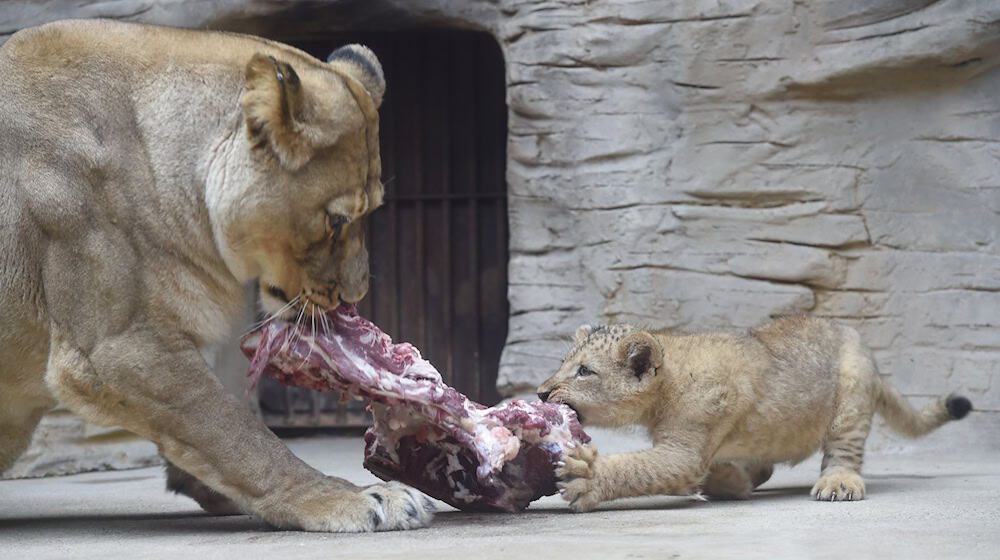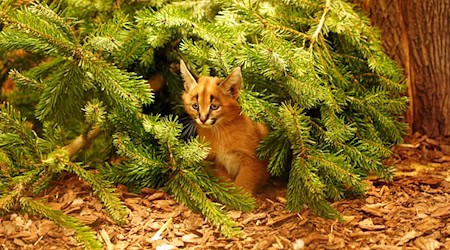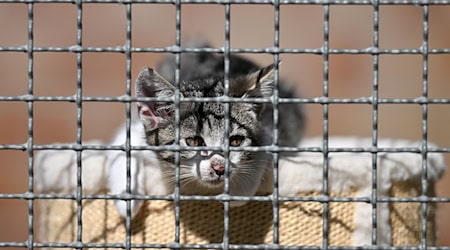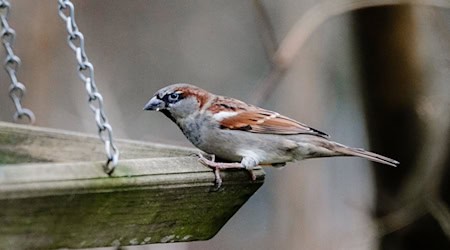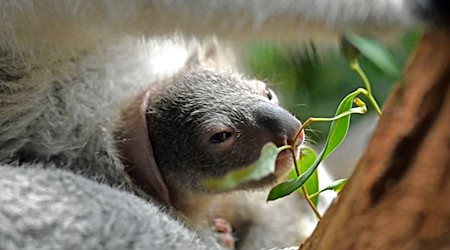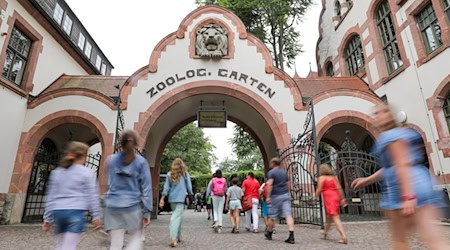Zoo inhabitants are fed meat several times a day. Whether it's lions, snakes or birds of prey, some animals feed primarily on meat. But why do zoos sometimes also feed dead animals they have bred themselves? In 2014, for example, Copenhagen Zoo caused worldwide horror when it killed and fed a healthy giraffe.
A zebra stallion for Leipzig's lions
Two years ago, Leipzig Zoo Director Jörg Junhold described it as "common practice" to kill and feed an animal that cannot be housed in other zoos. Previously, a 15-year-old zebra stallion had been fed to lions in front of visitors.
"We feed dead animals to other animals every day," Leipzig Zoo spokeswoman Maria Saegebarth told the German Press Agency.
Turkey for the Sumatran tigress in Halle
This is also the case at the Bergzoo in Halle. It recently slaughtered its own turkey and fed it to Sumatran tigress Lara. When asked, the zoo explained that it had decided to slaughter a male turkey because not all birds could have been protected from bird flu in accordance with the rules.
Avian influenza, also known as bird flu, is an infectious disease that is often fatal in many bird and poultry species. It recently spread rapidly throughout Germany. Many districts had therefore imposed compulsory stabling.
"However, male turkeys must all be housed individually because otherwise they would not get along with each other," explained zoo spokeswoman Martina Paulsen from Halle. This was not possible. That is why the animal was slaughtered.
A case like this has never happened at Halle Mountain Zoo in the past, said Paulsen. However, such slaughtering cannot be ruled out in the future. "But that would be a very rare occurrence indeed."
Magdeburg can accommodate poultry
No animals have yet been fed to the zoo in Magdeburg, said zoo spokeswoman Regina Jembere. Even though thousands of wild birds have died from bird flu in some parts of Germany, the zoo is not currently considering slaughtering any poultry. "We have a number of bird species that can be housed indoors. That way, visitors can also see them," said Jembere.
Cattle and rabbits for the Bergzoo vultures
Some animals at the Bergzoo Halle are fed on dead animals because they are carnivores, explained Paulsen. Two lions, a tiger and several vultures, for example, are fed beef from local slaughterhouses at the weekend. These are older animals.
In addition, the big cats are fed three rabbits, three chickens and an additional kilo of meat in the form of lures every week, according to Paulsen. Small food animals such as rabbits, chickens, mice, rats, chicks and guinea pigs come from specialized feed retailers and are fed to owls, eagles and meerkats, among others. The zoo is also home to fish eaters such as giant otters and penguins. "Our crocodile gets fish once a week and meat once a week," said Paulsen.
Peta: Zoos treat animals "like disposable goods"
Feeding the meat of zoo-owned animals or animals kept for food is equally problematic from an animal rights perspective, said Yvonne Würz from the animal rights organization Peta. "Because the animals on display have absolutely no place in captivity."
But by using killed zebras as food for other animals, for example, zoos are trying to sell their "unscrupulous" actions to the outside world as an economically sensible solution, said Würz. Zoos treat animals "like disposable goods", according to the animal rights activist.
Copyright 2025, dpa (www.dpa.de). All rights reserved

